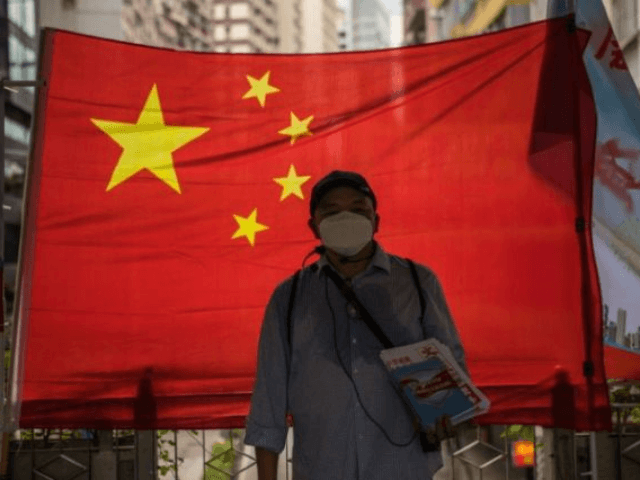China’s state-run Global Times reported approvingly on Thursday that Hong Kong has been forced to suppress countless movies, television shows, books, and online posts that could violate the new security law imposed by Beijing because the material could be judged to “threaten” Communist China, and those who display or sell the “threatening” material could be held legally liable.
The Global Times quoted Hong Kong secretary for security John Lee Ka-Chiu stating that the Chinese security law fixed a number of “loopholes” in law enforcement, such as by giving the police new powers to “remove information that incites others to commit crimes or engage in crimes that endanger national security.”
Lee warned that if “information that threatens national security” is not removed, “the publisher, network, and service provider should hold legal accountability.”
“He noted that representatives of any organization operating in Hong Kong or foreign organizations should provide materials for police, so they can prepare for prevention if anything happens. Furthermore, police must be given information to assess their risks to national security,” the Global Times related, interpreting this as a rejoinder to foreign social media companies like Facebook, Twitter, and Telegram announcing they will no longer comply with demands for user information made by Hong Kong police.
Censorship is accelerating rapidly in Hong Kong, both by direct command of the authorities and by frightened educators, booksellers, and other media providers fearful that they will be prosecuted under Beijing’s national security law for spreading “subversive” material.
“The damage has already been done in terms of self-censorship. Beijing’s actions in Hong Kong have successfully created a climate of fear. You don’t need a billion-dollar censorship apparatus when nothing is being said,” a pseudonymous co-founder of China watchdog site GreatFire.org told Vice News on Tuesday.
“The way the CCP (Chinese Communist Party) works is that, since its rule is by definition arbitrary and it can do whatever it wants, it creates uncertainty among its subjects, and many choose to err on the side of caution. That’s what the CCP’s brought to Hong Kong with the national security law,” pro-democracy activist Kong Tsung Gan added.
Rama Jit Singh Chima, Asia policy director for Access Now, argued that China deliberately crafted the security law to be vague, intimidating, and disrespectful of the legal standards Hong Kong has enjoyed until now, to say nothing of international human rights law.
The police, already greatly distrusted by Hong Kongers for how they have handled the protest movement, suddenly gained almost unlimited powers to ban online content and seize data without needing judicial approval. Resistance to their demands could bring both hefty fines and jail time, the latter more of a concern for Western tech giants who have vulnerable employees on the island.
The New York Times on Tuesday speculated China wanted to provoke a “showdown” with foreign tech giants, a showdown it expects to win by threatening to shut down their access to Chinese and Hong Kong markets if they do not accept the new tyranny in Hong Kong and resume cooperating with the authorities. The new abilities granted by the security law to fine tech giants like Google, imprison their Hong Kong employees, and seize their hardware might wear down their resistance to demands for censorship and harassment of political dissidents.
The Times further noted that “several small local apps associated with the protest movement have already shut down,” including apps that helped protesters find restaurants and retail outlets owned by people sympathetic to their cause.
Pro-democracy activists are also learning to curtail and disguise their speech to evade Chinese Communist censorship squads and search algorithms. For example, the famed slogan “Liberate Hong Kong, Revolution of Our Time” has been changed to the secret code of “Shopping In Hong Kong, Times Square,” and protest anthem “Glory to Hong Kong” was rewritten as a string of numbers that sound reminiscent of its lyrics when read out loud.

COMMENTS
Please let us know if you're having issues with commenting.